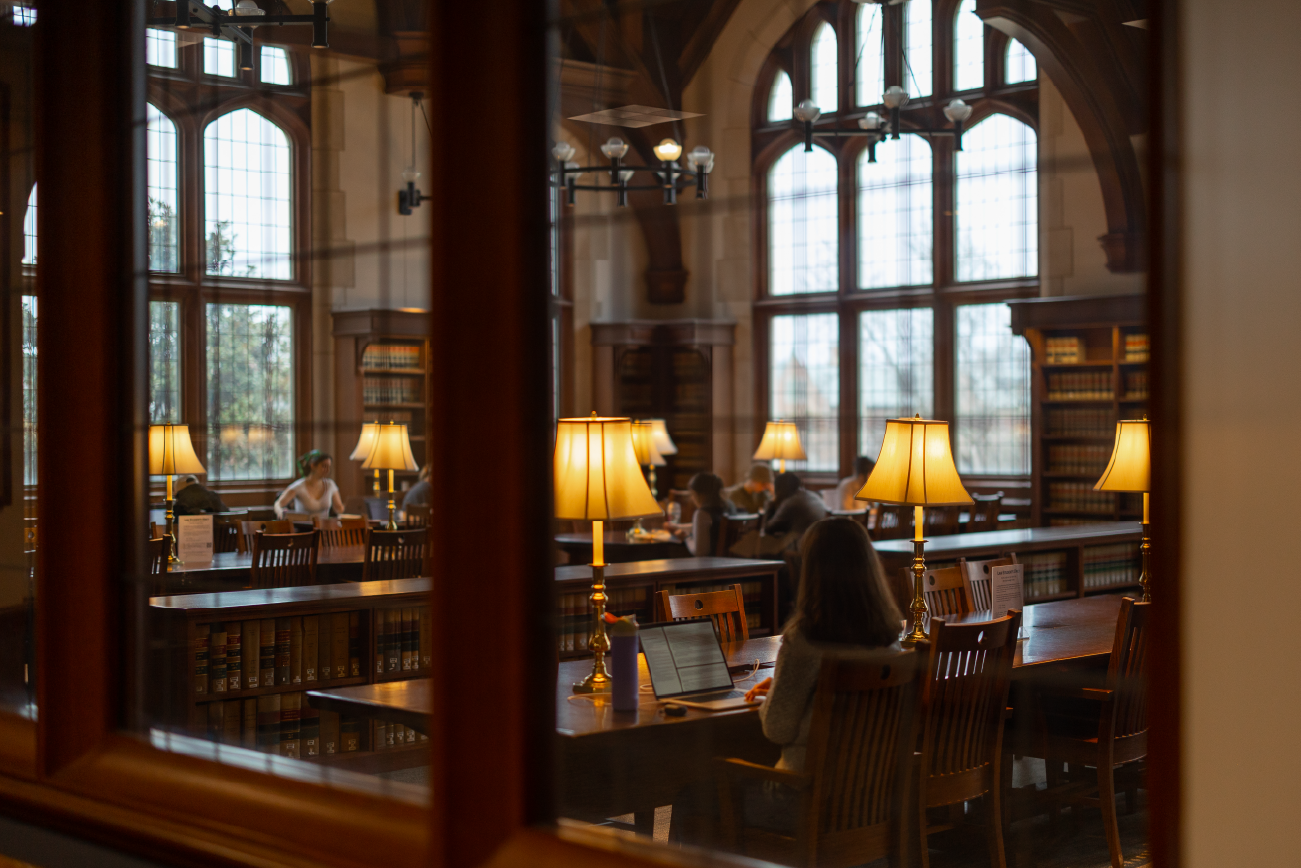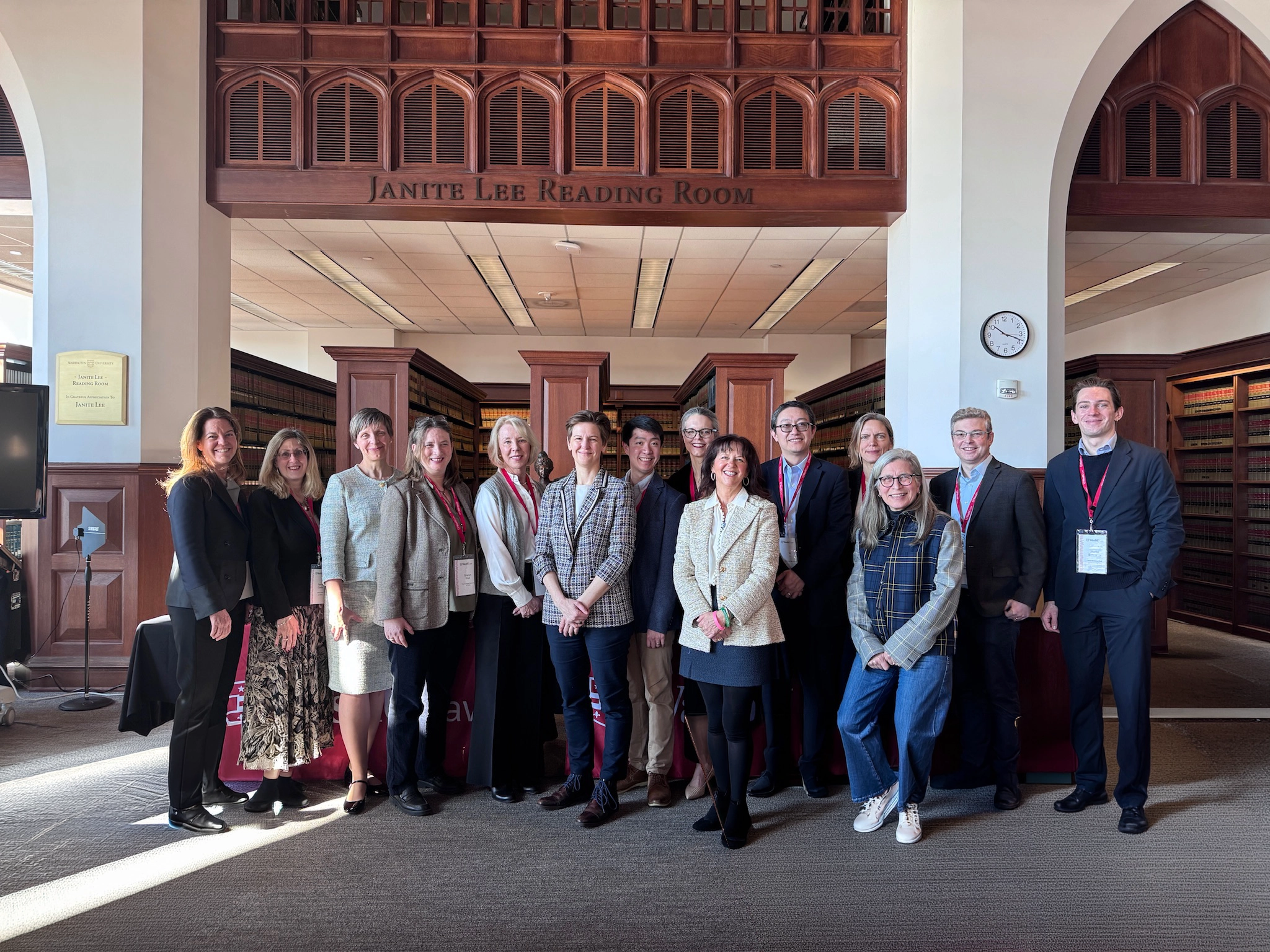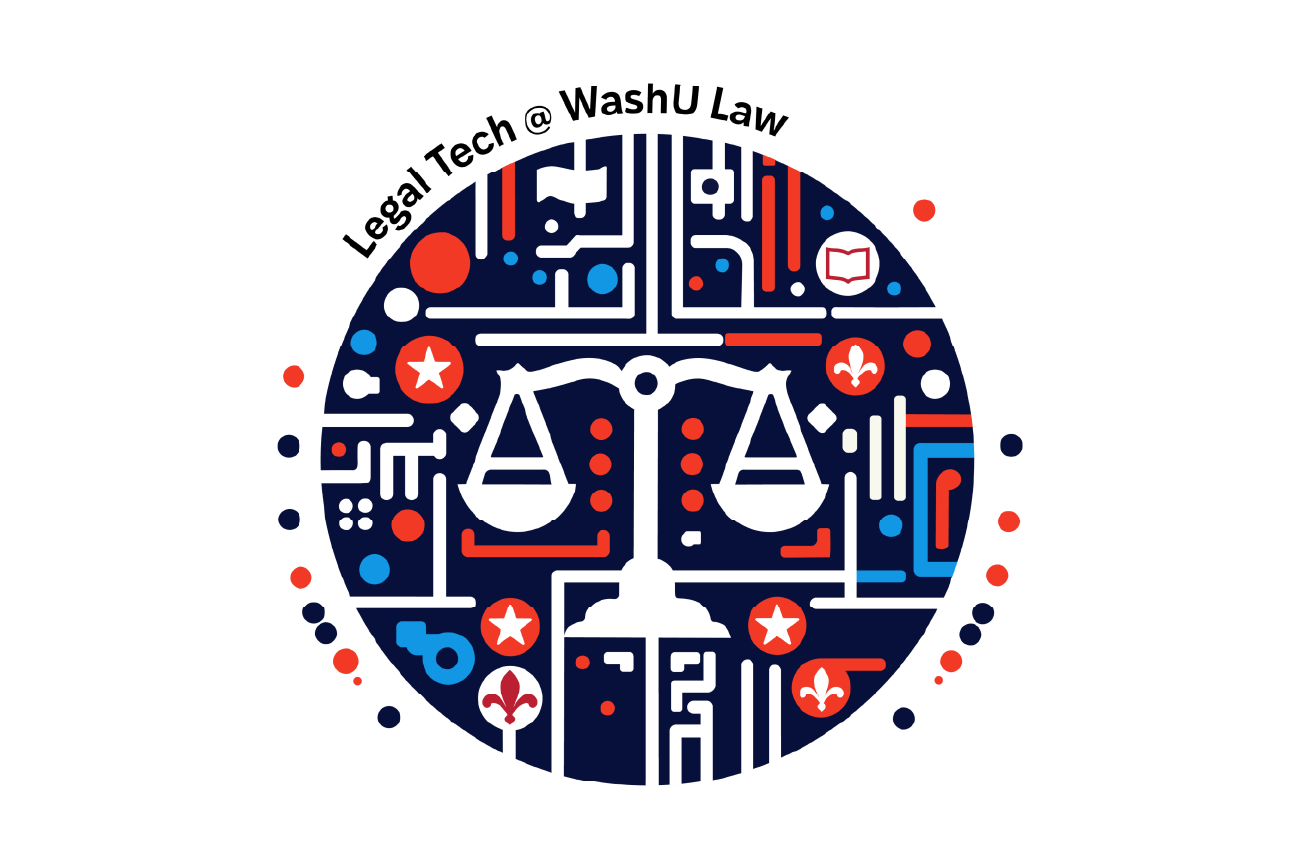
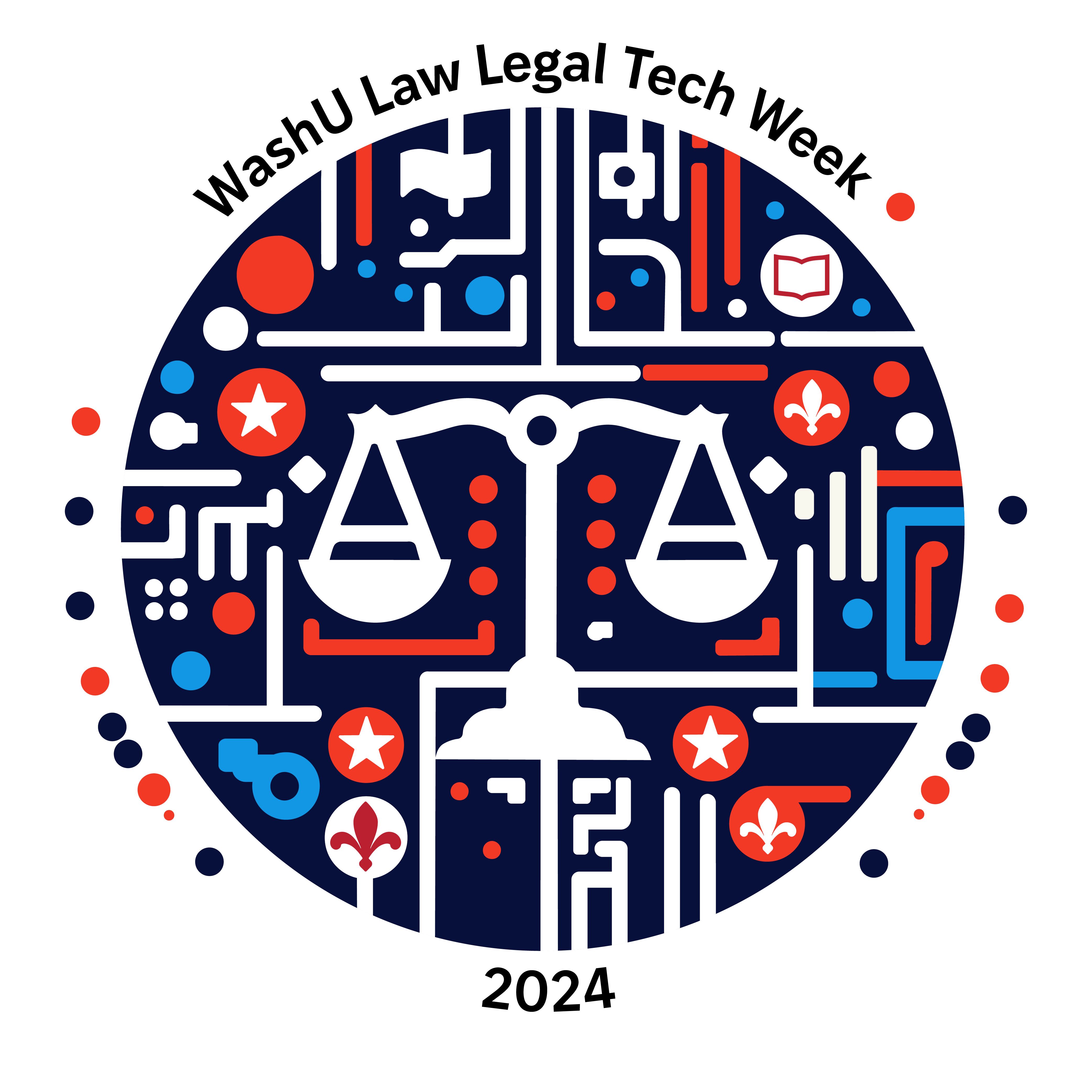 On October 21, WashU Law launched its first-ever Legal Tech Week, an event series dedicated to examining the transformative impact of artificial intelligence on the legal field. Uniting legal experts, tech innovators and WashU Law alumni, Legal Tech Week offered an in-depth look at how AI-enabled tools and technologies are reshaping the modern lawyer. Highlights included panel discussions, expert presentations, and interactive Q&A sessions, making a strong debut for what will become an annual tradition. Below is a recap of the week’s key events.
On October 21, WashU Law launched its first-ever Legal Tech Week, an event series dedicated to examining the transformative impact of artificial intelligence on the legal field. Uniting legal experts, tech innovators and WashU Law alumni, Legal Tech Week offered an in-depth look at how AI-enabled tools and technologies are reshaping the modern lawyer. Highlights included panel discussions, expert presentations, and interactive Q&A sessions, making a strong debut for what will become an annual tradition. Below is a recap of the week’s key events.
Legal Tech and AI: Evolving Opportunities for Forward-Thinking Lawyers
This panel featured WashU Law alums who now work at Lawfty, a personal injury firm on the cutting edge of legal tech: Todd Richheimer, CEO, and Nathan Kwan, Senior Engineer. The two of them shared insights into their entrepreneurial journeys and the many ways Lawfty uses AI to modernize legal processes and drive affordability for their clients.
“We have a problem in this country when it comes to access to justice. The people who need legal services the most can’t afford them. And if you look at why the cost of legal services hasn’t come down, I would argue it’s because of a lack of technology,” said Todd Richheimer. “And I believe that’s a problem that this generation of lawyers will solve.”
Joining them was another pair of legal tech leaders: Christian Puzder, CEO of Casefriend, and Angela Quinn, Chief Client Officer at Husch Blackwell, who spoke to AI’s role in streamlining case management and client service.
Watch the full panel here.
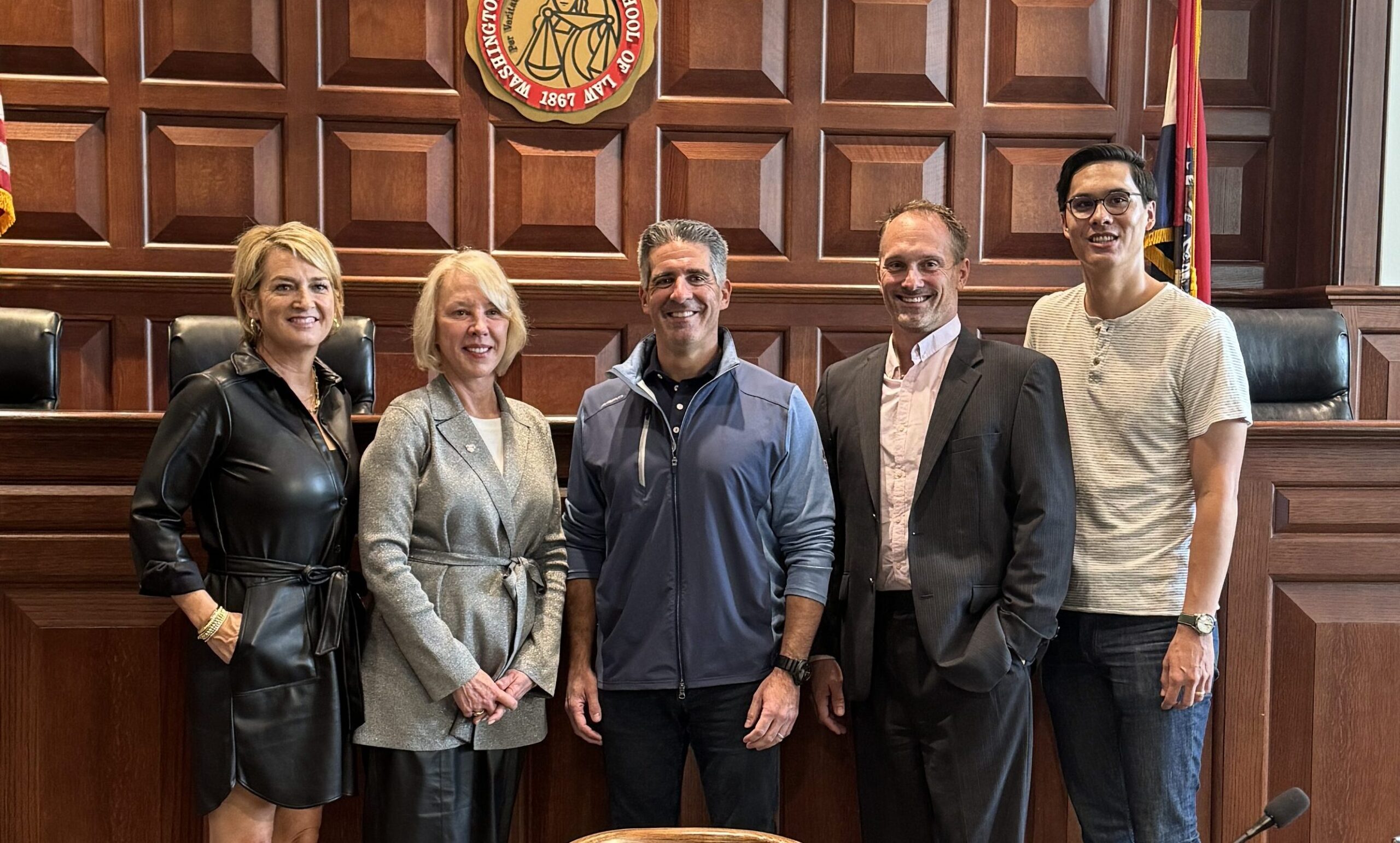
Justice in the Age of Artificial Intelligence
This session explored how AI technologies could support a fairer, more accessible justice system. Bridget McCormack, President and CEO of the AAA-ICDR and former Chief Justice of the Michigan Supreme Court, joined WashU Law’s Associate Dean and Director of the Law Library, Peter Hook, for an in-depth discussion on ethical and practical considerations of integrating AI into the justice system.
“There are several challenges we, as lawyers, have when it comes to integrating these AI tools into our work,” McCormack said. “We have an enormous scarcity of time and knowledge in our profession, as well as an unclear roadmap for where this technology goes. That said, as our clients become more sophisticated with AI, lawyers are facing more pressure to leverage these tools to drive cost efficiencies.”
Watch the full discussion here.

How to Regulate Artificial Intelligence
The week concluded with a presentation led by Céline Castets-Renard of the University of Ottawa and hosted by WashU Law’s Cordell Institute. Castets-Renard examined the European Union’s approach to AI regulation and its potential implications for the U.S., emphasizing the importance of cohesive global frameworks.
“The EU’s new AI regulations set an important precedent, balancing innovation with public safety,” Castets-Renard explained. “The U.S. will face its own regulatory challenges, but by studying these frameworks, we can craft policies that address the unique needs of our legal system while staying competitive globally.”
Looking Ahead
The inaugural Legal Tech Week marked an exciting step forward for WashU Law, one that showcased an unwavering commitment to cutting-edge education. By bridging theory and practice on AI-related topics, Legal Tech Week empowered students, alumni and industry professionals to shape the legal landscape with confidence and humanity. Stay tuned for updates about Legal Tech Week 2025!

